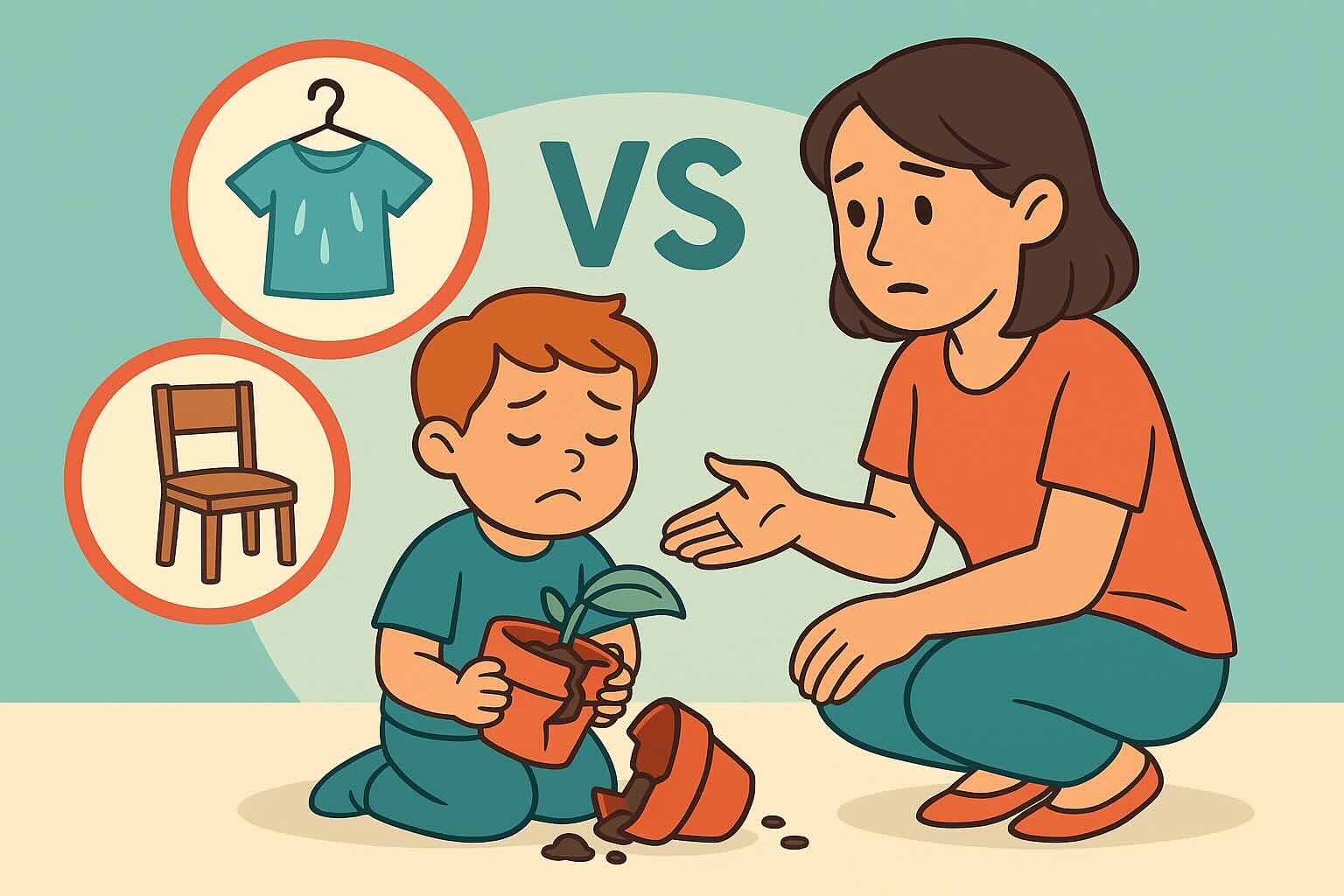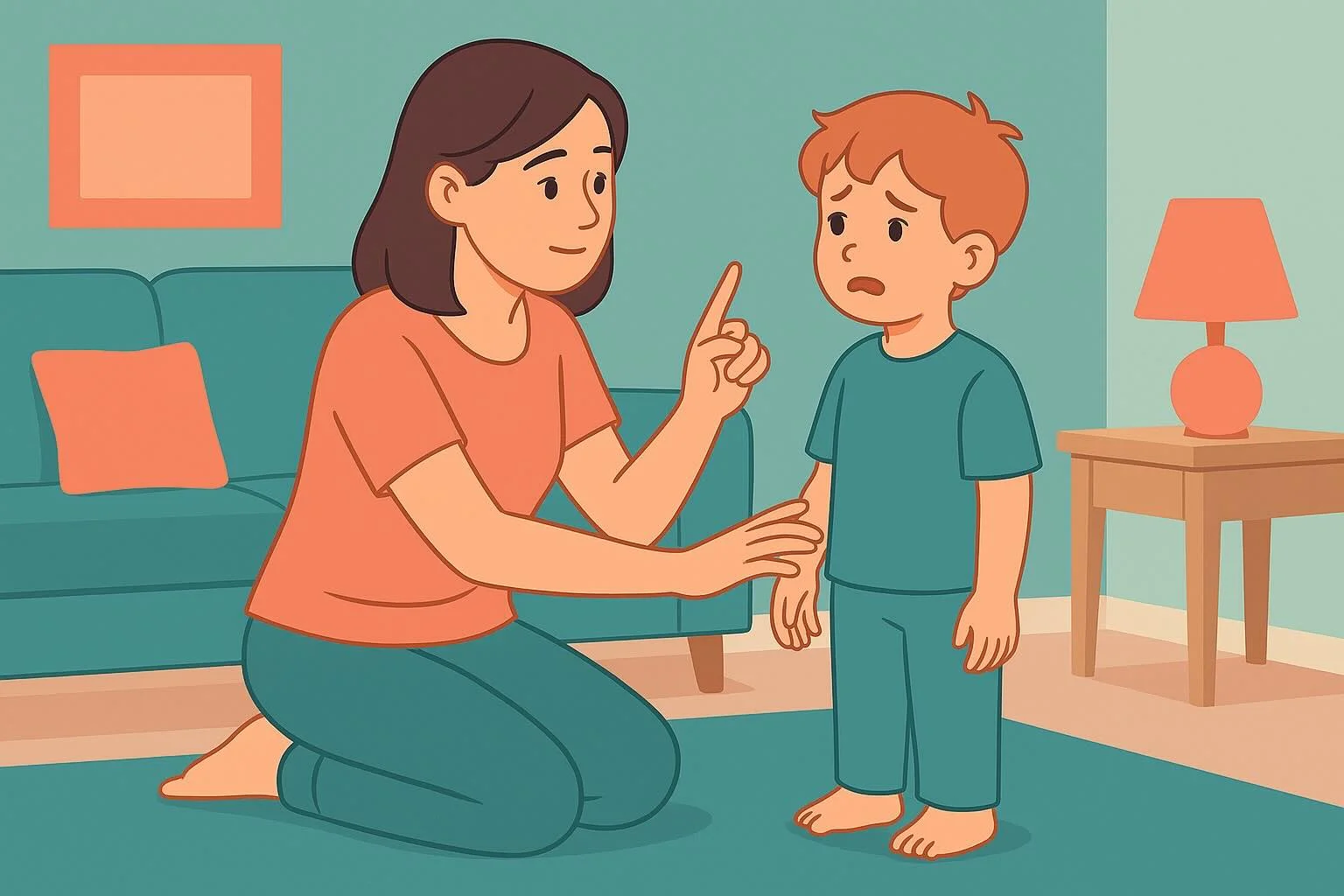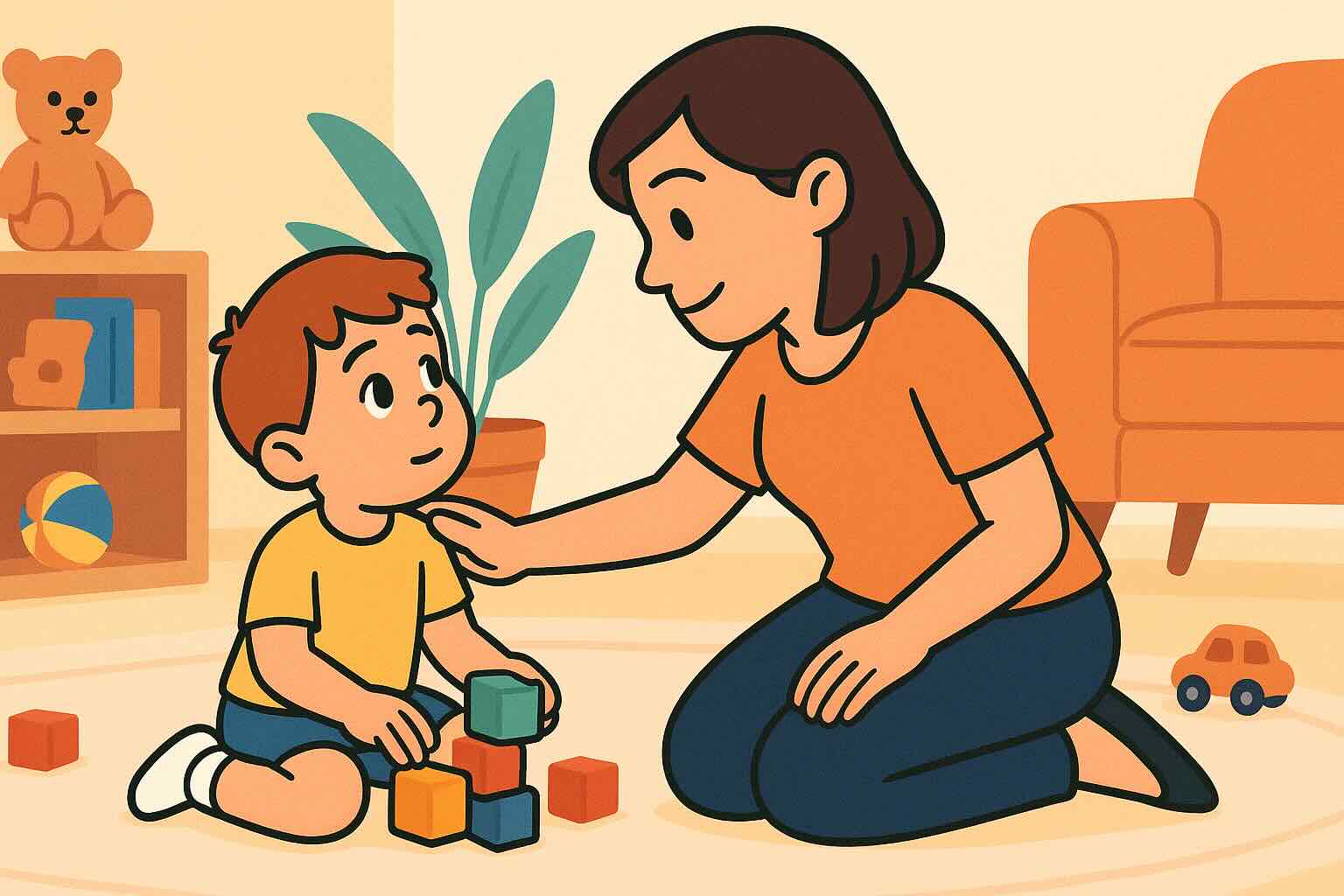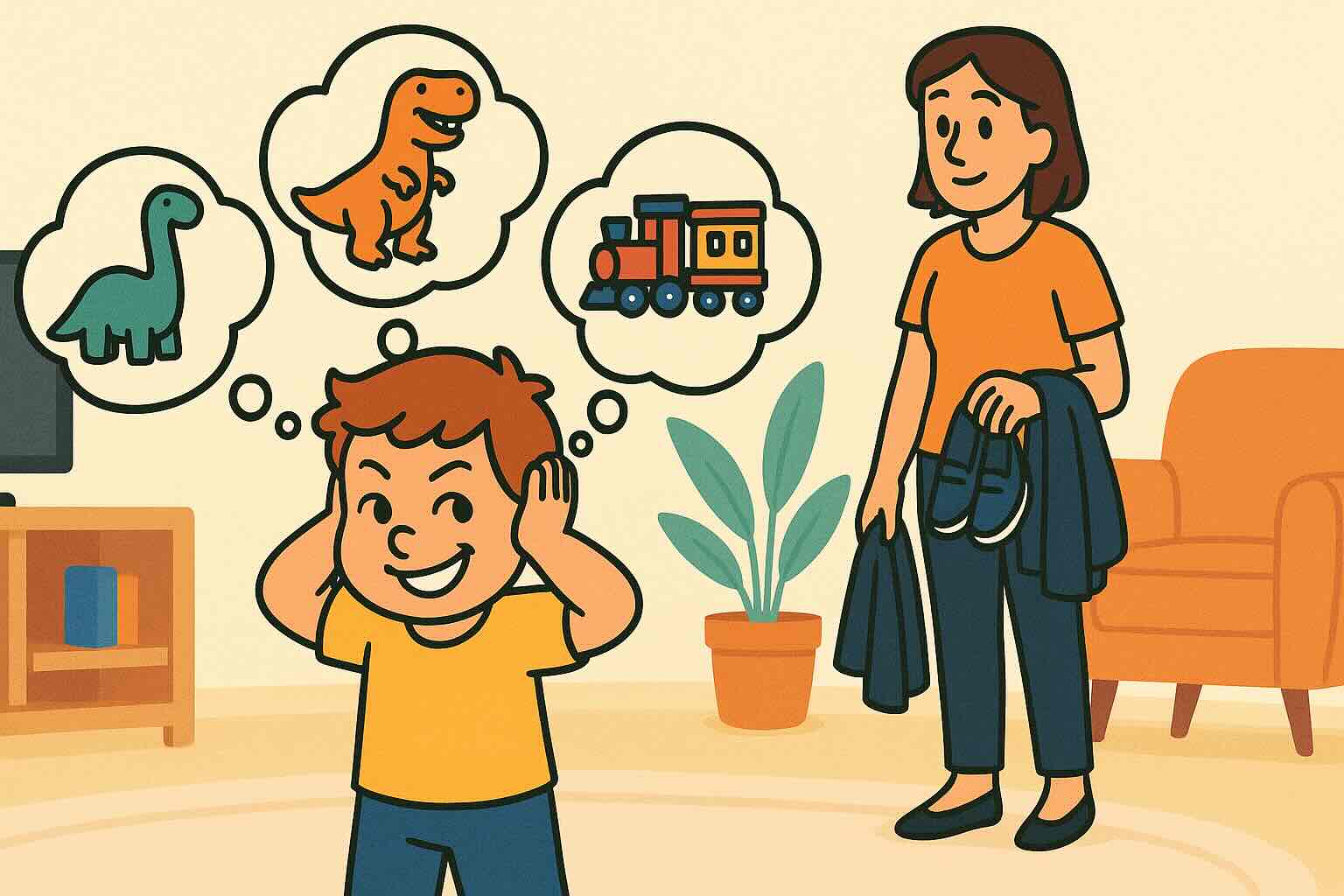Positive Discipline for 7 Year Olds: Character Building


Your 7-year-old storms into the house after school, throws their backpack on the floor, and declares, "My teacher is so unfair! She gave me a bad grade just because I didn't show my work, but I got the right answer! And now Sarah isn't my friend anymore because I told her she was wrong about something. Everyone at school is stupid!" Your instinct might be to lecture about respect, attitude, and following directions. But what if this moment is actually an opportunity to build advanced problem-solving skills and moral reasoning?
Positive discipline for 7-year-olds recognizes their sophisticated cognitive abilities while honoring their continued need for emotional support and character development. Seven-year-olds are at a remarkable developmental stage where they can engage in complex abstract thinking, understand nuanced social dynamics, and participate as genuine partners in family problem-solving. Yet they also face increased academic and social pressures that can overwhelm their still-developing emotional regulation systems.
This comprehensive guide provides specific examples, detailed scripts, and advanced strategies for common 7-year-old challenges. You'll learn how to leverage their expanding capabilities while building the emotional intelligence, moral reasoning, and self-discipline that will serve them throughout their school years and beyond. For related approaches, see our guides on progress not perfection and setting boundaries without punishment.
What You'll Learn in This Guide
- The 7-Year-Old's Complex Inner World - Understanding their advanced cognitive and emotional development
- Building Advanced Self-Discipline - Moving from external guidance to internal motivation
- Academic and Social Navigation - Supporting success in increasingly complex environments
- Sophisticated Problem-Solving Partnership - Engaging them as capable family contributors
- Advanced Moral Reasoning - Supporting their developing ethical framework
- Complex Emotional Intelligence - Handling perfectionism, anxiety, and social pressures
- Real-World Scenario Solutions - Specific examples with nuanced responses
- Identity and Character Formation - Connecting daily choices to long-term personal development
Estimated reading time: 19 minutes
Understanding Your 7-Year-Old's Developmental Sophistication
The Remarkable 7-Year-Old Mind
Advanced Cognitive Capabilities:
- Abstract reasoning - Can understand complex concepts like justice, loyalty, integrity, and personal values
- Sophisticated moral thinking - Comprehends why rules exist and can evaluate their fairness
- Complex problem-solving - Can think through multi-layered solutions and consider long-term consequences
- Identity awareness - Strong sense of personal values, preferences, and developing self-concept
- Social sophistication - Understanding of complex peer dynamics, social hierarchies, and group belonging
Academic and Social Pressures:
- Performance awareness - Deep understanding of success, failure, and comparison to others
- Peer influence - Increasing importance of friend relationships and social acceptance
- Independence drive - Strong desire for autonomy and self-direction
- Rule evaluation - Beginning to question authority and evaluate fairness of expectations
- Future orientation - Understanding how current choices affect long-term goals and relationships
Still Developing:
- Emotional regulation under pressure - Advanced thinking doesn't guarantee emotional control during stress
- Consistent application - May apply moral reasoning inconsistently across different situations
- Impulse control during emotional activation - Knowledge of right choice doesn't prevent wrong choice when overwhelmed
- Balance between independence and support - May swing between wanting total autonomy and needing significant guidance
The School-Age Brain Under Pressure
Why 7-year-olds can seem contradictory:
- They can engage in sophisticated moral discussions but still make impulsive choices when frustrated
- They understand complex social dynamics but may struggle with emotional reactions to peer conflicts
- They desire independence but still need emotional support and guidance
- They can be remarkably mature in some areas while surprisingly immature in others
The developmental reality:
- Academic and social pressures can overwhelm their developing stress management systems
- They're forming identity partly through testing boundaries and challenging authority
- Peer relationships become increasingly important, sometimes competing with family values
- They're developing their own moral compass while still needing adult guidance and support
Core Principles for 7-Year-Old Positive Discipline
Principle 1: Engage Their Intellectual Sophistication
Honor their advanced reasoning while providing appropriate emotional support.
Traditional approach: "Because I'm the parent and I said so" Positive discipline: "You have thoughts about this. Help me understand your perspective, and then I'll share mine."
Principle 2: Build Advanced Problem-Solving Partnership
Include them as capable contributors while maintaining appropriate adult leadership.
Traditional approach: Parent diagnoses problem and imposes solution Positive discipline: "This is a complex situation. What are your ideas for addressing it fairly?"
Principle 3: Support Their Developing Identity
Honor their growing sense of self while guiding character development.
Traditional approach: "You need to change your attitude" Positive discipline: "You're figuring out what kind of person you want to be. What feels right to you here?"
Principle 4: Connect Choices to Long-Term Character
Help them understand how daily decisions shape their developing identity and relationships.
Traditional approach: Focus on immediate compliance Positive discipline: "When you make choices like this consistently, what kind of person are you becoming?"
Real-Life Positive Discipline Examples by Situation
Scenario 1: Academic Pressure and Teacher Conflicts
The Situation: Your 7-year-old received a lower grade than expected and is angry at their teacher, saying "She's unfair! She doesn't like me! I got the right answers but she marked me down for stupid reasons like not showing my work!"
Traditional Response: "Don't blame your teacher! You need to follow directions and show your work like you're supposed to. Stop making excuses and take responsibility for your grade!"
Positive Discipline Response:
Step 1 - Validate Their Emotional Experience "You're really frustrated because you feel like your teacher isn't recognizing your understanding of the math. It's disappointing when you know the material but don't get the grade you expected."
Step 2 - Explore Their Perspective Thoroughly "Help me understand more about what happened. What do you think the teacher was looking for that you didn't include? What was your thinking when you decided not to show your work?"
Step 3 - Build Understanding of Different Perspectives "Why do you think teachers want to see the work, not just the answers? What might they be trying to understand about your learning?"
Step 4 - Problem-Solve Future Success "What are your ideas for making sure you get credit for everything you know? How could you approach this differently next time?"
Step 5 - Address the Relationship Dynamic "You're feeling like your teacher doesn't like you. What evidence supports that feeling, and what evidence might suggest something different? How could you improve your relationship with her?"
Step 6 - Connect to Character and Growth "What kind of student do you want to be when facing academic challenges? How do you want to handle situations where you disagree with a teacher's expectations?"
Why This Works:
- Validates their legitimate frustration while building perspective-taking
- Helps them understand the purpose behind academic expectations
- Builds problem-solving skills for future academic challenges
- Addresses relationship concerns without dismissing their feelings
- Connects to character development and growth mindset
Scenario 2: Complex Social Drama and Peer Pressure
The Situation: Your 7-year-old comes home upset because their friend group is excluding another child, and when your child tried to include them, the group threatened to exclude your child too. Now they're torn between doing what they think is right and maintaining their friendships.
Traditional Response: "You should always do the right thing and be kind to everyone. If those kids aren't nice, then they're not good friends anyway. Just ignore what they say and include the other child."
Positive Discipline Response:
Step 1 - Honor the Complexity of Their Dilemma "This is a really tough situation. You're caught between wanting to be kind to someone who's being excluded and wanting to maintain your friendships. That's a hard position to be in."
Step 2 - Explore Their Values and Feelings "What feels right to you about this situation? What do you think about excluding people, and how does it feel when you're part of that?"
Step 3 - Discuss the Social Dynamics "Why do you think your friends are excluding this other child? What do you think might be going on for them? And what do you think it feels like to be the excluded child?"
Step 4 - Problem-Solve Creative Solutions "What are some ways you could be kind to the excluded child without directly confronting your friend group? Are there ways to include them that might not trigger your friends' resistance?"
Step 5 - Discuss Peer Pressure and Character "When friends pressure us to do things that don't feel right, how do we handle that? What kind of friend do you want to be, and what kind of friends do you want to have?"
Step 6 - Support Their Decision-Making "This is ultimately your choice about how to handle it. What feels most aligned with the person you want to be? How can I support you in following through with that choice?"
Why This Works:
- Acknowledges the genuine complexity of peer social dynamics
- Builds moral reasoning skills without imposing simplistic solutions
- Develops their ability to navigate peer pressure
- Supports their developing values while respecting their autonomy
- Builds confidence in their own moral compass
Scenario 3: Lying and Deception About Responsibilities
The Situation: You discover your 7-year-old has been lying about completing homework for several days, creating elaborate stories about assignments being cancelled or teachers being absent, and when confronted with evidence, they become defensive and blame external circumstances.
Traditional Response: "I can't believe you've been lying to me for days! You're in huge trouble! No privileges until you learn to tell the truth and be responsible!"
Positive Discipline Response:
Step 1 - Create Safety for Truth Without Trapping "I can see that homework hasn't been getting done, and there have been some creative explanations about why. I'm less concerned about what happened and more interested in understanding what you need support with."
Step 2 - Explore the Underlying Issues "Help me understand what's been making homework difficult. What led to the decision to create these stories instead of just telling me homework was challenging?"
Step 3 - Address the Fear Behind the Deception "It seems like you were worried about my reaction if I knew homework wasn't getting done. What were you afraid would happen if you told me the truth?"
Step 4 - Problem-Solve the Original Challenge "Let's focus on making homework manageable for you. What parts are hardest? What time of day works best? What kind of support would be helpful?"
Step 5 - Rebuild Trust and Honesty "When we're not honest with each other, it makes it hard to solve problems together. How can we create a family culture where it's safe to tell the truth about struggles?"
Step 6 - Connect to Character and Relationships "What kind of person do you want to be when facing difficulties? How do you want to handle challenges in ways that build trust rather than damaging it?"
Natural Consequence: "Since homework hasn't been completed consistently, I'll need to check in with you daily until you show me you can handle this responsibility independently. This isn't punishment - it's support until trust is rebuilt."
Why This Works:
- Creates safety for honesty rather than increasing deception
- Addresses root causes rather than just punishing symptoms
- Builds problem-solving skills around academic responsibilities
- Focuses on character development and relationship repair
- Uses natural consequences that teach rather than punish
Scenario 4: Sibling Conflicts with Emotional Manipulation and Power Plays
The Situation: Your 7-year-old is in conflict with their younger sibling and begins using sophisticated emotional manipulation: "You always take their side because they're younger," "I wish I was an only child," and attempting to get the younger child in trouble by provoking them and then playing victim.
Traditional Response: "Stop being manipulative! You're the older one and you should know better! Go to your room and don't come out until you can treat your sibling nicely!"
Positive Discipline Response:
Step 1 - Address the Emotional Pain Behind the Manipulation "You're using some pretty big emotional statements. It sounds like you're feeling unfairly treated and like you don't have as much power in this family as you'd like."
Step 2 - Validate Without Reinforcing the Behavior "Sometimes when we feel powerless, we try to regain control in ways that don't actually help us get what we need. You want fairness and attention, and the way you're trying to get it is causing more problems."
Step 3 - Explore Their Perspective "Help me understand what fairness looks like to you in our family. What makes you feel like I take your sibling's side? What would feel more balanced?"
Step 4 - Address the Manipulation Directly "I notice you've been trying to get your sibling in trouble by provoking them and then acting like the victim. What are you hoping to accomplish with that strategy?"
Step 5 - Problem-Solve Family Dynamics "What are some ways you could get the attention and fairness you're looking for that would actually work better? How could you and your sibling solve conflicts without needing me to referee?"
Step 6 - Connect to Character and Family Values "What kind of big sibling do you want to be? How do you want to use your influence and power in our family? What would make you proud of how you handle conflicts?"
Why This Works:
- Addresses the underlying needs without reinforcing manipulation
- Builds awareness of their own behavior patterns
- Develops problem-solving skills for family dynamics
- Empowers them to use their influence positively
- Connects to character development and family contribution
Scenario 5: Perfectionism and Fear of Failure in Advanced Challenges
The Situation: Your 7-year-old is working on a challenging school project and becomes increasingly agitated, finally having a complete meltdown, tearing up their work, and declaring "I'm stupid! I can't do anything right! I'm never going to be good at anything!"
Traditional Response: "Don't say that about yourself! You're very smart! This project is fine - you're just being too hard on yourself. Just do your best and stop worrying about it being perfect!"
Positive Discipline Response:
Step 1 - Validate Their High Standards and Frustration "You have incredibly high standards for yourself, and when your work doesn't meet those standards, it's intensely frustrating. I can see how much you care about doing quality work."
Step 2 - Address the All-or-Nothing Thinking "Your brain is telling you that if this project isn't perfect, it means you're not smart. But intelligence isn't about getting everything right the first time - it's about learning and growing through challenges."
Step 3 - Normalize the Learning Process "Every expert in every field has produced work that didn't meet their standards. That's how learning happens - through trying, adjusting, and trying again. What you're experiencing is normal for someone who cares about excellence."
Step 4 - Focus on Growth and Process "What are you learning through working on this project? What new skills are you developing? What parts have you already figured out that were hard at first?"
Step 5 - Teach Self-Compassion and Resilience "How would you talk to your best friend if they were struggling with a project like this? Can you offer yourself that same kindness and encouragement?"
Step 6 - Problem-Solve the Project Practically "What would help you move forward with this project in a way that feels manageable? Should we break it into smaller steps, get additional resources, or approach it from a different angle?"
Why This Works:
- Validates their desire for excellence without reinforcing perfectionism
- Teaches growth mindset and resilience
- Builds emotional regulation during academic challenges
- Develops self-compassion and realistic self-talk
- Provides practical support while building independence
Advanced Problem-Solving and Character Development
Sophisticated Moral Reasoning at Seven
7-year-olds can understand complex ethical concepts:
- Integrity vs. People-Pleasing - Doing what's right even when it's socially difficult
- Justice vs. Mercy - Understanding when rules should be applied strictly vs. compassionately
- Individual vs. Community Good - Balancing personal desires with group welfare
- Honesty vs. Kindness - Navigating situations where truth might hurt feelings
- Loyalty vs. Principles - Choosing between friend loyalty and personal values
The "Ethics Conference" Approach
Regular family discussions about moral complexity:
- "What would you do if a friend asked you to lie to their parents for them?"
- "How do you balance being honest with being kind when someone asks your opinion?"
- "When is it okay to break a rule, if ever?"
- "What do you do when different adults give you different rules or expectations?"
- "How do you decide what's fair when people have different needs?"
Building Advanced Empathy and Perspective-Taking
Move beyond simple "how would you feel?" to complex understanding:
- "What might be going through their mind that would make them act that way?"
- "What experiences might they have had that influence their behavior?"
- "How might their situation be different from yours in ways that aren't obvious?"
- "What might they need that they're not able to ask for directly?"
Developing Personal Values and Identity
Help them articulate their developing value system:
- "What qualities do you most admire in other people? Why are those important to you?"
- "What kind of reputation do you want to have among your friends and teachers?"
- "When you imagine yourself as a teenager or adult, what kind of person do you want to be?"
- "What are you willing to stand up for, even if it's difficult?"
Natural Consequences and Advanced Learning
Complex Consequences 7-Year-Olds Can Navigate
7-year-olds can learn from consequences that:
- Are delayed by days, weeks, or even longer
- Involve abstract concepts like reputation, trust, and character
- Have multiple layers and long-term relationship implications
- Require sophisticated understanding of cause and effect
Sophisticated Natural Consequence Examples
Academic Integrity:
- Situation: Cutting corners on assignments or not following directions
- Natural consequence: Lower grades, teacher disappointment, missed learning opportunities
- Your support: "When we don't follow through completely on our work, we miss opportunities to show what we know and to learn new things. What are you noticing about your grades and your relationship with your teacher?"
Social Reputation:
- Situation: Gossip, breaking confidences, or being unreliable with friends
- Natural consequence: Friends stop trusting them, fewer invitations, social isolation
- Your support: "When people can't count on us to keep their secrets or follow through on our commitments, they stop including us in their personal lives. What changes are you noticing in your friendships?"
Family Contribution:
- Situation: Not following through on family responsibilities or commitments
- Natural consequence: Family functioning is disrupted, loss of privileges associated with family membership
- Your support: "When family members don't do their part, it affects everyone's experience. Our family privileges are based on everyone contributing. What do you notice about how our family works when responsibilities aren't handled?"
Personal Integrity:
- Situation: Dishonesty or not living up to their stated values
- Natural consequence: Loss of self-respect, internal conflict, others questioning their word
- Your support: "When our actions don't match our values, it creates internal stress and affects how others see us. How do you feel about yourself when you act in ways that don't align with what you believe is right?"
Creating Meaningful Logical Consequences
Trust and Relationship Repair:
- Situation: Patterns of dishonesty or unreliability
- Logical consequence: Increased supervision and gradual rebuilding of trust
- Script: "Trust is built through consistent actions over time. When there's been dishonesty, we need to rebuild that trust gradually. What are your ideas for showing that you're ready for more independence?"
Social Skills and Relationship Impact:
- Situation: Hurtful words or actions toward family or friends
- Logical consequence: Work to repair relationships and make meaningful amends
- Script: "When we hurt people we care about, we need to work to repair the relationship in ways that show we understand the impact. What would be meaningful repair here?"
Privilege and Responsibility Connection:
- Situation: Misusing privileges or not handling freedoms responsibly
- Logical consequence: Return to more supervised level with clear criteria for re-earning privilege
- Script: "This privilege requires demonstrating responsibility. When you're ready to handle it appropriately, these are the things I'll need to see..."
Building Self-Discipline and Internal Motivation
Moving Beyond All External Control
Why external systems become counterproductive:
- 7-year-olds can become dependent on external validation and lose touch with internal compass
- Reward and punishment systems can undermine intrinsic motivation for learning and contributing
- They begin to negotiate, manipulate, and game external systems
- Character development requires internal values and self-direction
Fostering Sophisticated Internal Motivation
Focus on identity, character, and long-term vision:
- "When you make choices like this consistently, you're building a reputation as someone who..."
- "How did it feel inside when you chose to do the right thing even though it was hard?"
- "What kind of person are you becoming through the choices you make each day?"
- "When you look back on this situation in ten years, how do you want to remember how you handled it?"
Teaching Advanced Self-Reflection
Build their capacity for self-evaluation and course correction:
- "What are you learning about yourself through this experience?"
- "How do you feel about the person you're becoming through your choices?"
- "What patterns do you notice in your behavior that you want to continue or change?"
- "What kind of growth do you see in yourself over the past year?"
Building Vision for Their Future Self
Help them connect current choices to long-term identity:
- "The teenager you become will be shaped by the choices you make now. What kind of teenager do you want to be?"
- "How do you want people to describe you when you're not around?"
- "What qualities do you want to be known for throughout your life?"
- "What legacy do you want to create through how you treat others?"
Supporting Academic Success and Social Development
Understanding 7-Year-Old Academic Pressures
Complex challenges they face:
- Increased academic expectations and standardized testing pressure
- Comparison to peers and awareness of academic hierarchies
- Balancing multiple subjects, teachers, and expectations
- Managing long-term projects and time management
- Developing study habits and organizational systems
Advanced Partnership with School
Sophisticated collaboration with educators:
- Discuss character development goals alongside academic goals
- Share insights about your child's learning style, motivation, and challenges
- Address social dynamics and peer relationships proactively
- Focus on growth mindset and resilience-building
- Coordinate approaches to perfectionism, anxiety, or pressure
Home Support for Advanced Success
Building sophisticated life skills:
- Teach advanced organizational and time management systems
- Practice complex social problem-solving scenarios
- Build emotional regulation strategies for high-pressure situations
- Develop their ability to advocate for themselves appropriately
- Foster independence in problem-solving while remaining available for support
When 7-Year-Olds Need Additional Support
Recognizing When Development Needs Professional Guidance
Consider professional support if:
- Academic or social struggles significantly interfere with daily functioning
- Perfectionism or anxiety becomes debilitating
- Peer relationships are consistently problematic across multiple settings
- Behavioral challenges persist despite consistent positive approaches
- Your child expresses persistent hopelessness, sadness, or anxiety
Common Areas Where 7-Year-Olds May Need Extra Support
Academic challenges:
- Learning differences that become more apparent with increased demands
- Executive functioning difficulties with organization and time management
- Perfectionism or anxiety about performance that interferes with learning
Social and emotional challenges:
- Difficulty navigating complex peer dynamics or friendship drama
- Intense sensitivity to criticism, rejection, or social comparison
- Anxiety about performance, social acceptance, or future expectations
Family dynamics:
- Difficulty balancing independence with family connection
- Challenges with authority or family rules as they develop their own values
- Sibling conflicts that involve sophisticated emotional manipulation
4-Week Implementation Plan for 7-Year-Olds
Week 1: Advanced Foundation and Character Focus
- Begin "character questions" in daily interactions
- Start regular family ethics discussions and moral reasoning conversations
- Practice validating their sophisticated perspective before providing guidance
- Focus on connecting daily choices to character development and identity
Week 2: Complex Problem-Solving and Consequences
- Implement advanced collaborative problem-solving for family and personal challenges
- Allow complex, age-appropriate natural consequences to unfold
- Build their sophisticated empathy and perspective-taking skills
- Practice advanced self-reflection and self-evaluation techniques
Week 3: Internal Motivation and Independence Building
- Focus on internal satisfaction and character-based motivation
- Increase their decision-making responsibilities in age-appropriate areas
- Partner with school on character-based approaches to academic challenges
- Practice advanced social problem-solving and peer pressure navigation
Week 4: Integration and Long-Term Character Development
- Evaluate which approaches resonate most with your individual child
- Plan for continued moral reasoning and character development
- Establish regular family discussions about values, growth, and identity
- Celebrate their advanced capabilities while maintaining appropriate support
Success Indicators for 7-Year-Old Positive Discipline
Short-Term Changes (2-4 weeks)
- Engages in sophisticated moral reasoning discussions
- Shows advanced empathy and concern for others' wellbeing
- Takes ownership of complex mistakes and works on meaningful repair
- Demonstrates independent problem-solving thinking in various situations
Medium-Term Growth (2-3 months)
- Handles complex school and social situations with increasing independence
- Shows genuine cooperation based on understanding and character rather than compliance
- Demonstrates strong internal motivation for positive choices
- Builds and maintains friendships through consistent good character
- Manages academic responsibilities with minimal adult oversight
Long-Term Development (6+ months)
- Strong moral compass that guides decision-making across various contexts
- Advanced emotional regulation skills appropriate for their developmental stage
- Genuine empathy and sophisticated consideration in relationships
- Internal motivation and self-discipline that persists without external control
- Character-based identity and genuine pride in doing the right thing
- Partnership with family based on mutual respect and shared values
Key Takeaways: Positive Discipline for 7-Year-Olds
- ✅ Engage their sophisticated moral reasoning while providing appropriate emotional support and guidance
- ✅ Focus on character and identity development over simple rule compliance
- ✅ Build genuine problem-solving partnership while maintaining appropriate adult wisdom and boundaries
- ✅ Use complex natural consequences that connect to abstract concepts and long-term implications
- ✅ Support their expanding social world while teaching advanced relationship skills
- ✅ Develop sophisticated internal motivation through character connection and future vision
- ✅ Address perfectionism and pressure with growth mindset and self-compassion
- ✅ Partner with school on character-based approaches to academic and social challenges
- ✅ Build advanced self-reflection skills for lifelong growth and self-direction
- ✅ Connect daily choices to long-term identity formation and life vision
Remember: Your 7-year-old is developing remarkable capabilities for moral reasoning, problem-solving, and character development while still needing emotional support and guidance. When you respond to their challenges with respect for their growing sophistication and patience for their continued development, you're building the foundation for a lifetime of integrity, empathy, internal motivation, and strong character. The investment you make now in their character development will serve them well throughout their academic journey and into their adult relationships and contributions to the world.
This article is based on moral development research, character education principles, and positive discipline approaches. Every child develops uniquely, and character building is a long-term process that requires patience and consistency. Focus on progress and relationship-building rather than perfection as you develop these life-shaping parenting skills that will influence not just your child's behavior, but their identity and contribution to the world.
Challenging Moments Support
Access step-by-step parenting strategies, quick tips, and age-specific guidance for difficult situations when you need it most.

24/7 AI Parenting Assistant
Get instant, personalized advice with expert-curated parenting knowledge. Chat with your AI coach anytime, anywhere.

Boundary Setting Scripts
Set firm, loving boundaries without punishment using evidence-based scripts and strategies that build cooperation and respect.
Frequently Asked Questions
Need personalized support?
RootWise's AI coach can provide tailored strategies for your specific situation, available 24/7 when you need it most.
Learn More About AI Coaching →



